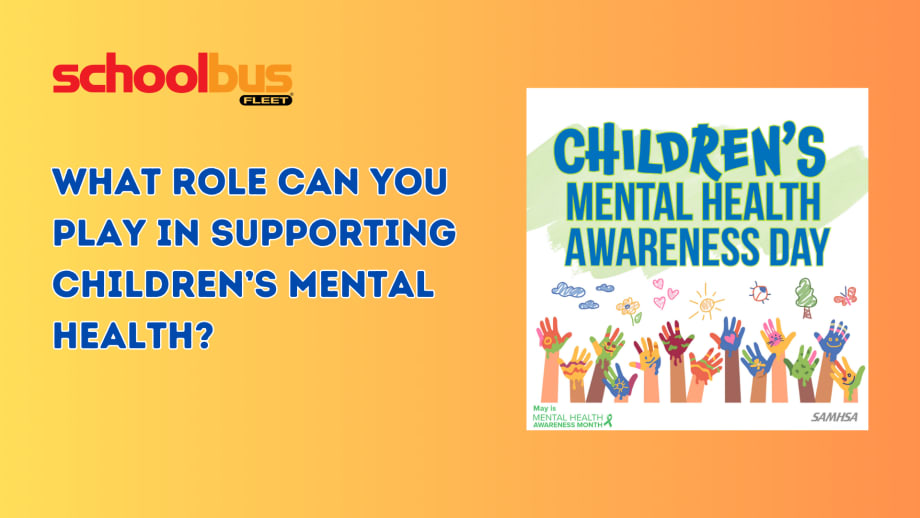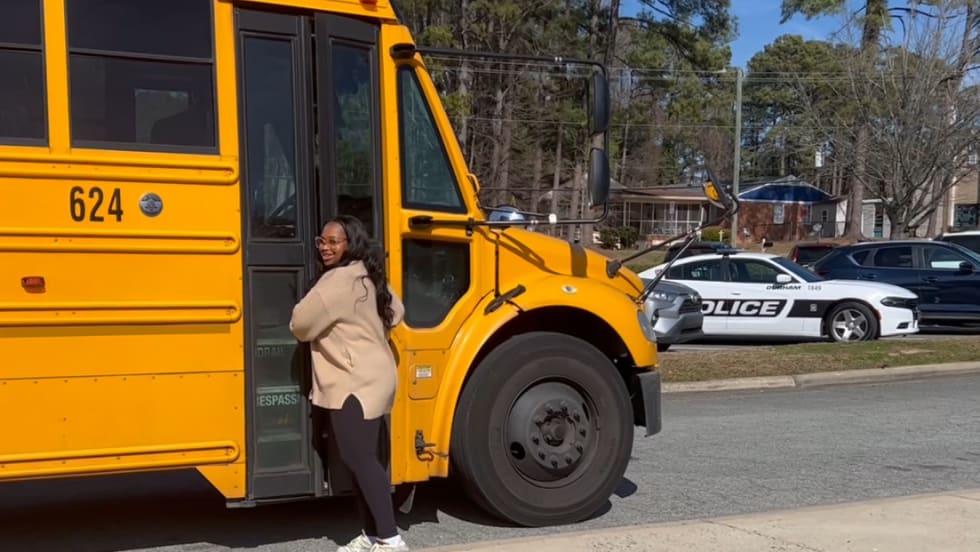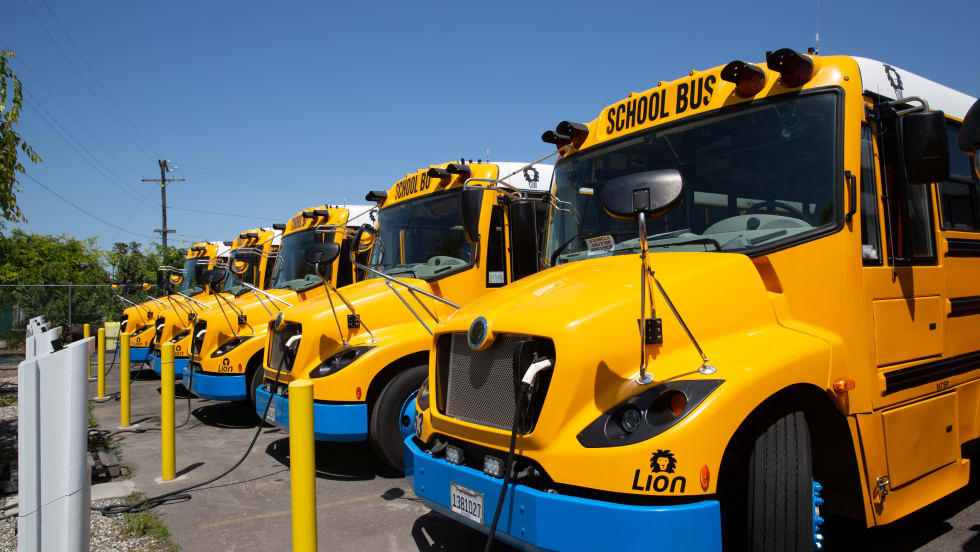The journey to and from school is often a child's first taste of independence, a space where friendships are forged and memories are made. Yet, for some children, it can also be a source of anxiety, stress, or isolation. School bus drivers can serve as the reassuring presence that bridges the gap between home and school, offering a sense of security and familiarity during these potentially vulnerable moments.
On this Children’s Mental Health Awareness Day, it’s important to recognize the critical role school transportation professionals can play in providing a supportive atmosphere to the students in their care.
For 20 years, the Substance Abuse and Mental Health Services Administration has recognized Children’s Mental Health Awareness Day. The agency reports that an estimated 1 in 5 youth has a diagnosable mental, emotional, or behavioral disorder – and many don’t get the help they need. SAMHSA’s youth programs focus on promoting wellness and the prevention, treatment, and recovery of mental health and substance use from early childhood to young adulthood.
5 Positive Paths to Improved Student Mental Health
Here are five things to keep in mind today – and every day, really – when it comes to improving mental health outcomes for young people:
Stigma reduction: Addressing the stigma associated with mental health is crucial. Encouraging open conversations about mental health in schools, families, and communities helps normalize seeking help and support for mental health challenges.
Access to resources: Ensuring that children and families have access to mental health resources is essential. This includes access to mental health professionals, counseling services, support groups, and educational materials tailored to children and their caregivers.
Early intervention: Recognizing the signs of mental health issues early can prevent them from escalating into more serious problems later in life. Promoting awareness of common mental health issues in children and providing resources for early intervention and support can make a significant difference in their long-term well-being.
Promotion of resilience: Building resilience in children is key to supporting their mental health. Teaching coping skills, emotional regulation techniques, and promoting healthy lifestyle habits can help children develop the skills they need to navigate challenges and bounce back from adversity.
Inclusive approaches: Recognizing and addressing the unique mental health needs of diverse populations, including children from different cultural backgrounds, LGBTQ+ youth, children with disabilities, and those from low-income families, is essential. Ensuring that mental health awareness efforts are inclusive and culturally sensitive helps to reach all children who may need support.
New Funding Opportunities for Youth Mental Health
The Biden-Harris administration this month rolled out $46.8 million in behavioral health funding opportunities. Key takeaways from the announcement include:
Enhanced access to youth mental health services: The announced funding opportunities allocate a significant portion to support youth mental health initiatives. This investment aims to improve access to culturally competent behavioral care for children and adolescents across the nation. By focusing on early intervention strategies and suicide prevention programs in various settings such as schools, juvenile justice systems, and pediatric health programs, children should have better access to the mental health support they need.
Strengthening the behavioral health workforce: Another key takeaway is the emphasis on growing the behavioral health workforce through funding for training and technical assistance programs. By investing in programs like the Minority Fellowship Program and Addiction Technology Transfer Centers Cooperative Agreements, the administration aims to enhance the capacity and cultural competency of behavioral health practitioners. This not only addresses health disparities but also ensures that underserved populations receive high-quality care from professionals trained to meet their unique needs.
Integration of behavioral and physical health care: By fostering regional and national alliances among practitioners and organizations, these initiatives aim to promote a holistic approach to healthcare delivery. This integration is essential for addressing the complex needs of individuals with co-occurring physical and behavioral health conditions, ultimately improving health outcomes and overall well-being.
Other Grant Programs Benefiting Youth Mental Health
SAMHSA also is investing more than $550 million in children’s mental health this fiscal year, including more than $110 for Project AWARE (Advancing Wellness and Resiliency in Education), which helps schools develop sustainable infrastructure for school-based mental health programs.
SAMHSA’s other grant programs this year include:
If you or someone you know is struggling or in crisis, help is available. Call or text 988 or chat at 988lifeline.org. To learn how to get support for mental health, drug, or alcohol issues, visit FindSupport.gov. If you are ready to locate a treatment facility or provider, you can go directly to FindTreatment.gov or call 800-662-HELP (4357).














